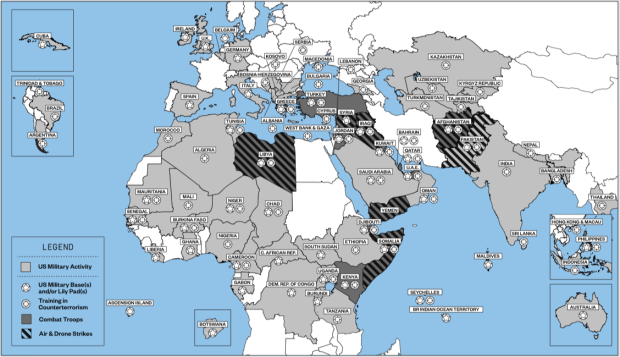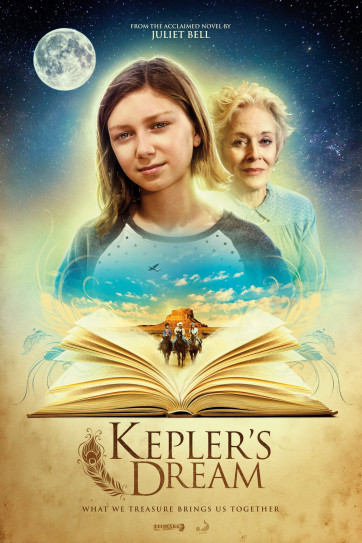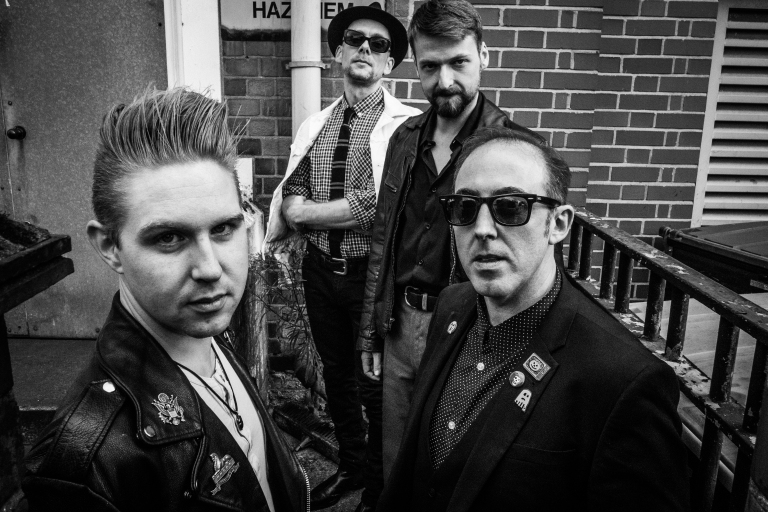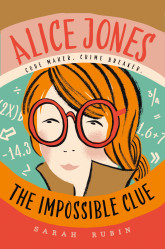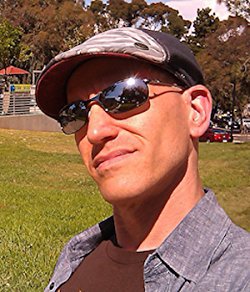
Tim Susman is a speculative fiction author who lives in sunny San Francisco (If you're not familiar picture Clacton-On-Sea with classier burger joints and wider roads). Like a lot of authors in this digital age he's recently branched out into having more than one name.
Those of you into the anthropomorphic, or 'furry', literature scene will no doubt recognise the name Kyell Gold , a titan in the field. But now, having taken on the pen name 'Tim Susman' (which is, er, also his real name. See above) he's entered the world of YA.
The Tower And The Fox is the first book in a trilogy set in an alternative early ninetieth century America, one still under British rule but smouldering with talk of independence. It's also a world rich with magic and magic colleges and young Kip Penfold is intent on getting enrolled in one of the latter: Prince George's College Of Sorcery. The only problem is Kip is a calatian: a magically created race of animal people created to serve humanity. No calatian has ever been a student, but when a mysterious attacker cuts short the lives of many an apprentice, Kip seizes his opportunity. But will living his lifelong dream be easy?
I caught up with Tim to ask him about TTATF, his work as Kyell Gold, what being two different authors is like and the fallout from Slate Magazine covering The Time He Desires, his furry novel about a muslim individual's homosexuality.
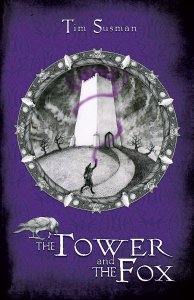
You've had a lot of success under your pseudonym Kyell Gold. Why use your own name on this series? Brand separation or is the Tower series more personal somehow?
If anything, the Kyell books may be a little more personal, or at least more intimate, which is one of the reasons they are at a remove through a pseudonym (which is now how a whole bunch of people primarily know me and has become part of me, so that strategy backfired). Brand separation is closer to the reason for using my real name here; Kyell's books belong squarely in the furry fiction realm (which is still accessible to everyone in the same way that anyone can pick up a steampunk book; the aesthetic isn't a velvet rope that only some people can pass) in that their entire worlds are populated with anthros—no humans, a sticking point for many readers.
The Calatians series is a more accessible alternate history in which the anthros were created by magic in a world populated by humans. Another reason, of course, is that I've gotten short fiction published under my real name and have been attending conventions under my real name, so it's really nice to now have a novel I can carry around and point at.
"The question is really whether an author coming out of the furry fandom could have a mainstream hit… heck, furry already has a bunch of movies…"
Anthro has been a very niche genre, but you seem to be taking it on a two-prong attack of wider literature: YA with The Tower And The Fox (as Tim Susman) and contemporary socio-politics with The Time He Desires (As Kyell Gold). Is that a deliberate choice or just the way your muse currently leads you?
I am for sure trying to get more people to at least pick up a furry book, because there are a bunch of people besides me doing great work in the genre now. Malcolm Cross and Watts Martin have recently published terrific novels, and Ryan Campbell's Fire-Bearer's series is a great fantasy epic (disclosure: all are friends and Watts's novel is published by Tower's publisher, Argyll), and the short story scene is booming there. But I didn't set out to break into YA or activist literature; I wanted badly to write these stories because they mattered to me, and I wrote them with the furry aesthetic because those are the worlds I enjoy living in.
You got interviewed at Slate about your novel The Time He Desires. Which got a fair bit of attention and generated a lot of online talk. How did you find that and, on a wider level, do you think anthro literature is due to break into the mainstream anytime soon?
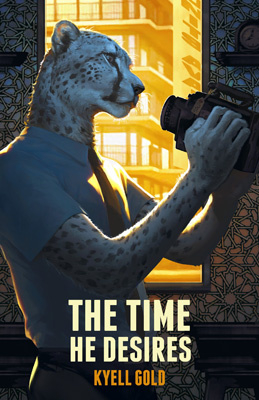 The online talk spiked while I was at a furry convention, amusingly, with a Twitter mention by David Duke (famous American white supremacist). Most of the attention was positive (and has continued to be), and while I'm not sure it changed any minds (either about Muslim immigrants or about furries), I'm glad that people appreciated the story. As for the mainstream, well, anthro lit is already there: Watership Down, Narnia, werewolf books, and so on.
The online talk spiked while I was at a furry convention, amusingly, with a Twitter mention by David Duke (famous American white supremacist). Most of the attention was positive (and has continued to be), and while I'm not sure it changed any minds (either about Muslim immigrants or about furries), I'm glad that people appreciated the story. As for the mainstream, well, anthro lit is already there: Watership Down, Narnia, werewolf books, and so on.
The question is really whether an author coming out of the furry fandom could have a mainstream hit, and I think that can happen. I'm not sure it will lead to a mass “discovery” of anthro literature; it might look more like the cyberpunk wave of the mid-80s, where a few seminal works boosted the popularity of the genre. But I mean, heck, furry already has a bunch of movies…
Calatians, the magic capable animal races in Tower, have been there through much of the alternate history of your world. You could have picked any era to explore. So why pre-revolution America?
Your question also leads to another question: why is 1815 still pre-Revolution? So first: the book's overarching themes are about, in a political sense, our responsibility to the people whose situation we created. It's a parent-child thing on a greater scale. So there are the Calatians, created by humans and suffered to live among them. Over their lives, they have gone from “creatures we created and can treat as we wish” to “creatures we should treat with respect” to “people who can do some things.” Kip's story is about another step in the evolution of that relationship, as Kip pushes the bounds of what Calatians can and are allowed to do. So I wanted to set it against a thematically similar backdrop: the American colonies have changed in their standing from “a far-off place where some British people live” to “a society of British people far from their homeland,” and now they are “a society that in many ways feels separate from England.” This period in their history also leads to a change in their relationship with their parent. (Kip's relationship with his parents is undergoing a change through these books, though it's a subtler one.)
And I wanted to set it in 1815 partly to underscore the change in history that magic brings—an earlier unrest in the 1770s that in our timeline led to the American Revolution was thwarted by sorcerers. Forty years seemed about enough time for unrest to start again. 1815 is also a more interesting time in Europe, allowing me to put the Napoleonic wars in the recent past (in my alt history, the French Revolution also took place later and was led by Napoleon in a more orderly takeover).
Which leads me to my next question: any plans to explore other eras/places/people in the Calatian world? It seems rich with possibility.
Not right now—this series is planned for four books, so let me get a little closer to the end of it before I start thinking about more! There are two eras that do suggest some possibilities: the first is around the early 1600s (Shakespeare!) when the Calatians gained personhood in the eyes of the Church, and the other would be the mid-to-late 1800s around the Industrial Revolution (it might be delayed a bit in my timeline).
That last is because (these are only surface thoughts with little research) at the moment, magic is a non-scalable technology in the world. There's still need of industry. You can have a crew of physical-magic sorcerers building roads and walls, but you can manufacture hundreds of trucks and steamrollers and even if it takes them longer to do a single road, in the aggregate they'll be faster because you can deploy them all at once. So what happens to sorcerers in that case? They become very specialized, in military engagements for one, in medicine for another, in diplomacy for a third, just to use some examples. But they lose some of their awe, in kind of the way (I think) that airplane pilots lost theirs. That kind of change would be interesting, I think, and maybe it would be nice to tell a story with the Calatians in it that isn't focused on them.
"The choices you make become your habits, and your habits define the person you are."
I've noticed a theme in your fiction, from your Dev and Lee series right up to Tower, of characters struggling to live their identities in an often hostile world but that the only key to success with that is to fully come to terms with their identity and all its facets, wherever that might lead them. And, of course, that process can be immensely painful, sometimes even disruptive to the people around them. Would you say that was your 'grand question' as a writer, or at least something like that?
Very much so. I approached this question at first through coming-out stories, and that theme of learning to be yourself is very important to the gay community. A lot of coming-out stories stop with the public declaration of sexuality, and that's their purpose, so that's fine. But I always thought that there was going to be more to the story than that. I mean, in my life I've had to “come out” as a gay man, a science fiction fan, a furry fan, and a writer. Some of those experienced more resistance than others, but in all of them there was a journey both personal and interpersonal. For example, in defining myself as a writer: when I was laid off from my last tech job, I stayed in touch with some of my former colleagues, and was very open with them about the books I was writing and the fact that they were selling. Even so, for years after that they would ask, “So are you looking for another job still…?”
There's always some kind of resistance to changing your identity, public or private, but the resistance comes from people who are made uncomfortable or who can't understand what you're trying to be, who want you to think that their discomfort is as important as the essence of who you are inside. I want to show people that it's not, that as long as you're not hurting anyone, you get to decide who you are.
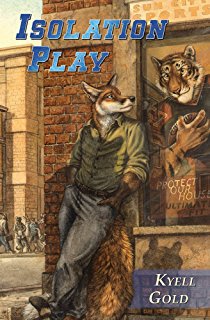
And the other part of that that I want to convey is that these changes can begin anytime, and they never stop. In stories, to make them dramatically interesting, you have to focus on a concrete goal. Coming out stories are usually about admitting sexuality to oneself or one's parents, or maybe the object of one's affection: a tangible, single goal. But coming out in reality is a bell curve. You start with yourself, then trusted friends, and there's an inflection point where you gain confidence and you want to come out to everyone you meet. There are a few big ones: out to your parents, out at the office, out to the extended family, maybe a conservative relative or two. But even after that, there are little ways in which you reassert your identity every day.
At the end of the Dev and Lee series, Lee says: “Big choices, small choices; the choices you make become your habits, and your habits define the person you are. You’re the accumulation of your past, both good and bad, and the only way to change is to begin making different choices today.” That's what I hope people take away from my books.
Advertisements Share this: